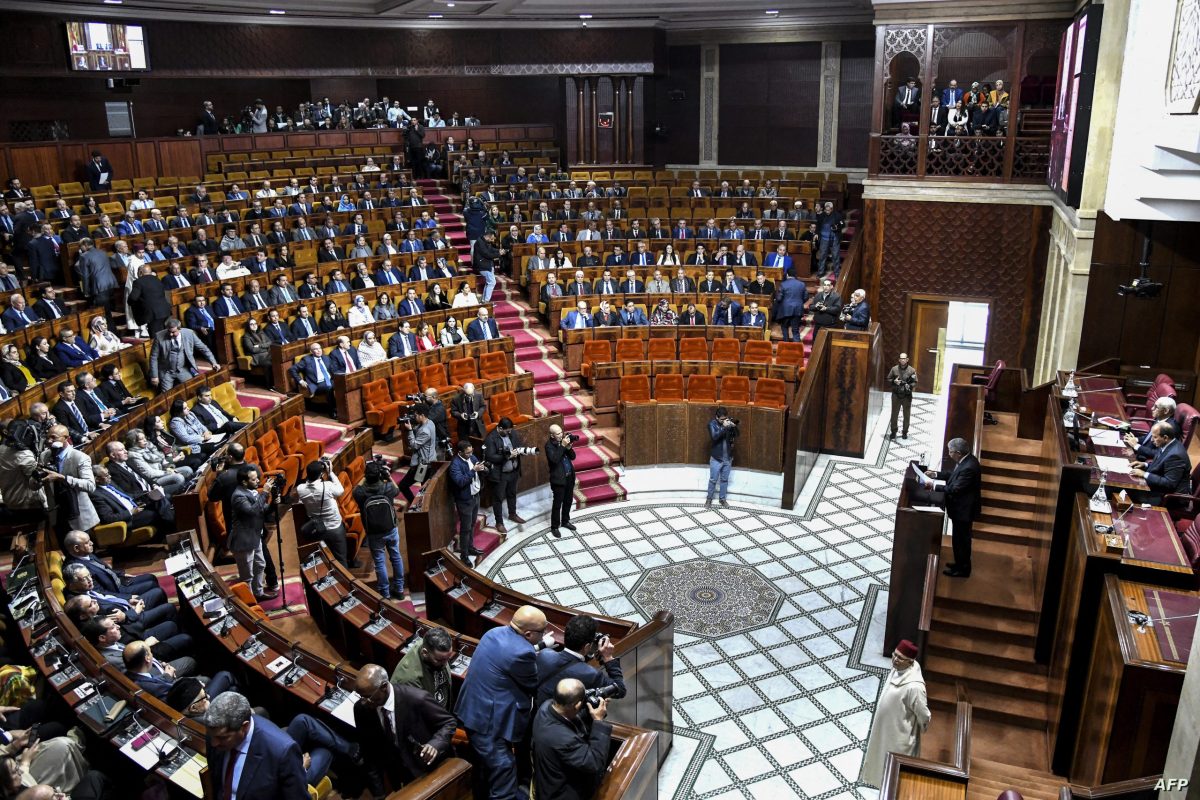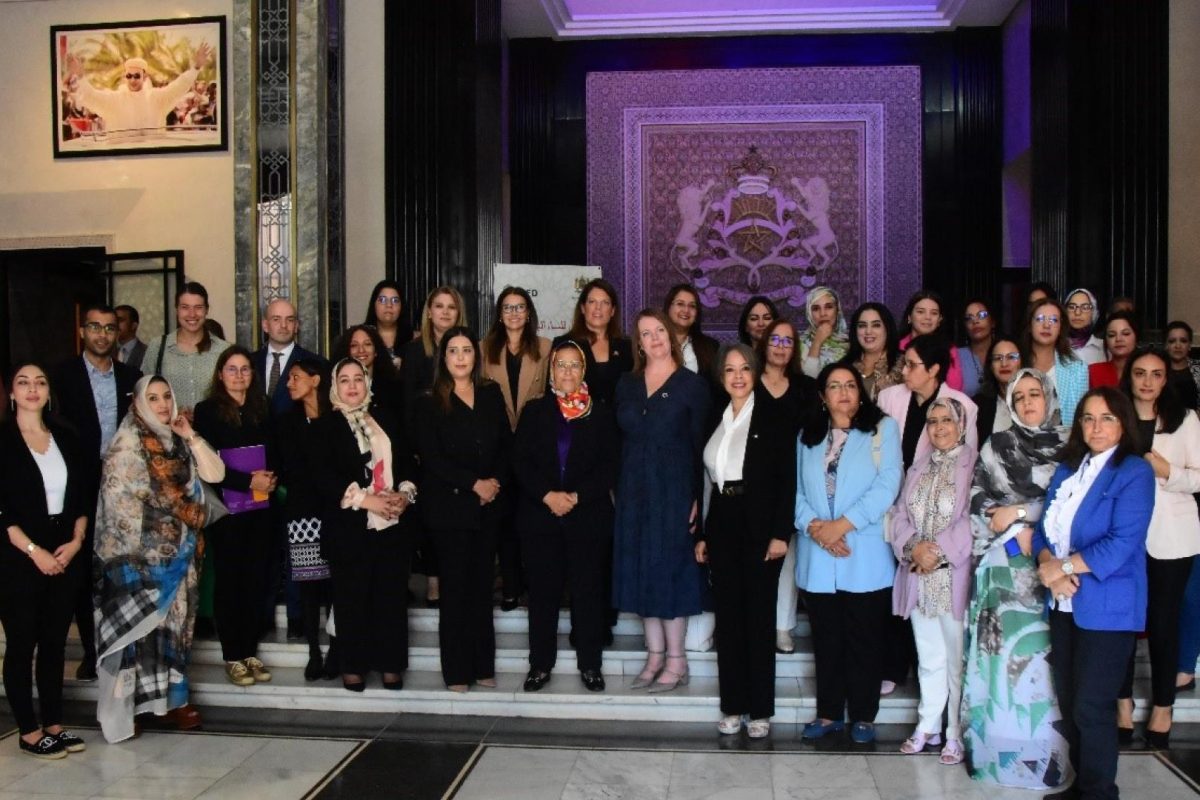[vc_row][vc_column][vc_column_text]
Trust in Institutions Index: Preliminary Findings
Introduction
The Moroccan Institute for Policy Analysis (MIPA) has completed a study on the Trust in Institutions Index to be published as an annual report in order to measure and analyze Moroccans’ level of confidence in various political and economic institutions. The preliminary results were presented on Tuesday, December 3, 2019 in Rabat.This report aims to both provide a platform for public debate on the issue of trust in institutions in Morocco and to make recommendations and proposals to decision makers in order to strengthen institutional trust.
Methodology
The report relies on a combination of quantitative and qualitative research techniques. A quantitative analysis was executed by the AVERTY research firm that was based on a sample of 1,000 people in October 2019, representing the Moroccan population aged 18 and over. The representative nature of the sample was ensured by the quota method (sex, age, and geographical area) according to the structure of the Moroccan population prepared by the High Commission for Planning (RGHP 2014). The questions constituted about 84 variables via CATI (Computer Assisted Telephone Interviews).
For the sample, about half of the participants were women. The under-29 age group represents about 31%, while the over-50 age group is about 28.7%. In terms of geographic distribution, the Atlantic coast regions accounted for 37%, the center 18.6%, the north 16.7%, and the south 27.6%. Thirty-five percent of those surveyed live in rural areas, and 65% of them live in urban areas.

In terms of average wages, households with an income of less than 8,000 dirhams per month make up the largest share: 57% of the respondents (32 people had a salary of less than 3,000 Dhs, and 25 people had a salary between 3,000 and 8,000 Dhs). As per their education levels, 14% of respondents had an elementary level of education, and 13% of respondents were illiterate.

In terms of qualitative analysis, the institute relied upon the ‘grounded theory’ approach, a methodology based on the construction of analytical frameworks through a dense and structured set of field data. In this regard, the in-depth interview technique was used with semi-interview questions with 23 participants from the cities of Casablanca, Rabat and Marrakech. It included a diverse sample that considers gender equity and socio-economic diversity. The interviews lasted approximately 60 minutes per participant.In addition, in-depth individual interviews were conducted with seven MPs and a staffer from the House of Councilors. Three focus groups were organized with about 16 participants in total: one for businessmen, another for unions (syndicates), and the third for local elected officials and political activists. The duration of each focus group was about 2 hours.
Social and Interpersonal trust
In terms of social trust, Moroccan trust their immediate families above all. The nuclear, family remains the social institution that generates the greatest confidence among Moroccans; about 95.2% of Moroccans express their confidence in the family, either substantially or moderately. When looking at the extended family (aunts, uncles, cousins, etc.), trust is lower, at 77.2%.
Overall, however, Moroccans generally do not trust each other, with 45% of respondents saying that people do not trust each other and 42.9% of respondents saying that they did not trust the rest of Moroccans.In addition, Moroccans do not trust foreigners and their neighbors to a high degree. From top to bottom, half of the sample trust neighbors, but Moroccans have little confidence in the people they met for the first time, with only 19.4% saying they trust complete strangers. In the same context, respondents do not consider persons of other religions or nationalities to be trustworthy, with only about 25% of Moroccans having expressed confidence in these groups.
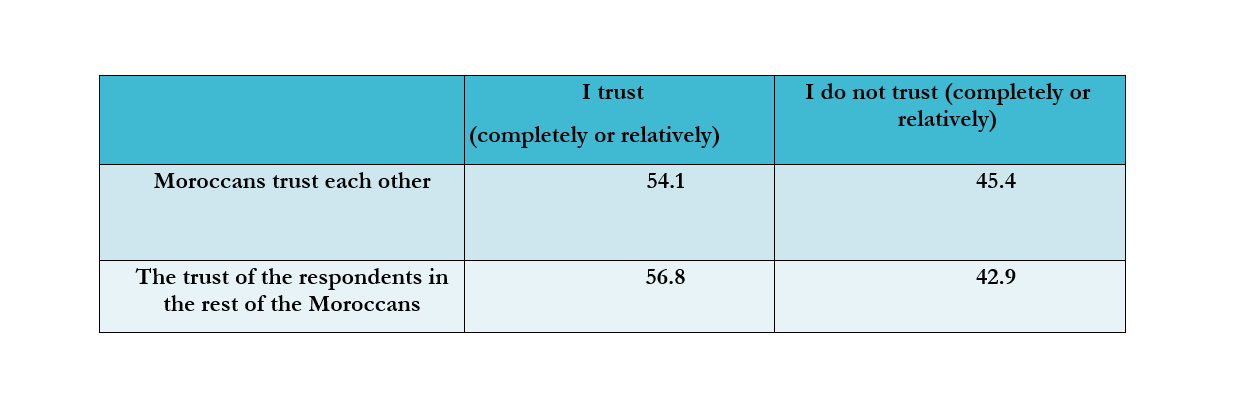
Political trust
Research participants indicated that they were not satisfied with the country’s overall direction, with 69% of them expressing worry about the country’s overall direction. This reveals a high degree of uncertainty and anxiety among Moroccans about the future. Half of Moroccans say they are unhappy about the economic situation, and about 74% believe that government efforts to fight against corruption are ineffective.
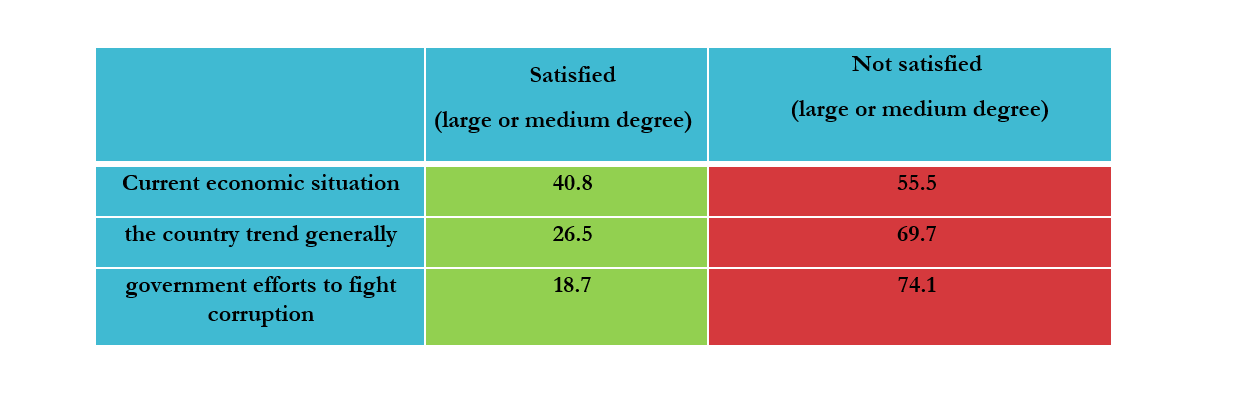
Confidence in the health and education sector
There is a clear distinction in confidence between the public and private sectors in terms of education and health. The private sector generally has higher levels of confidence in both cases. Confidence in public education is about 48%, while 83.2% of respondents trust private schools. The same observation can be made with regard to this discrepancy for the health sector, although confidence in this sector is generally not as high; only 24% of respondents trusting the public health sector, though 73% of respondents declared trusting the private health sector.
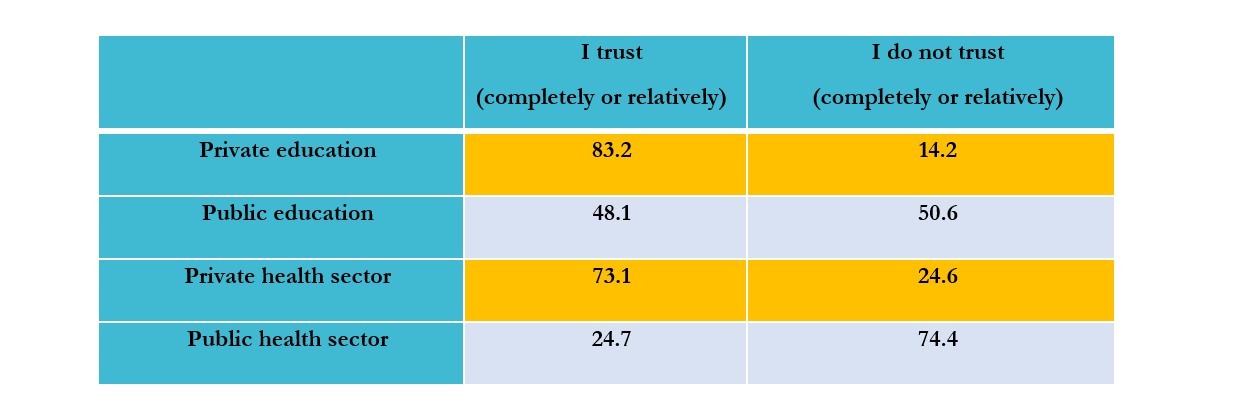
Confidence in elected institutions
Moroccans feel a great deal of distrust in elected institutions. In the case of political parties, about 69% of Moroccans said they did not trust all political parties. Only 25% trust unions or syndicates, and only 23% have confidence in their government.
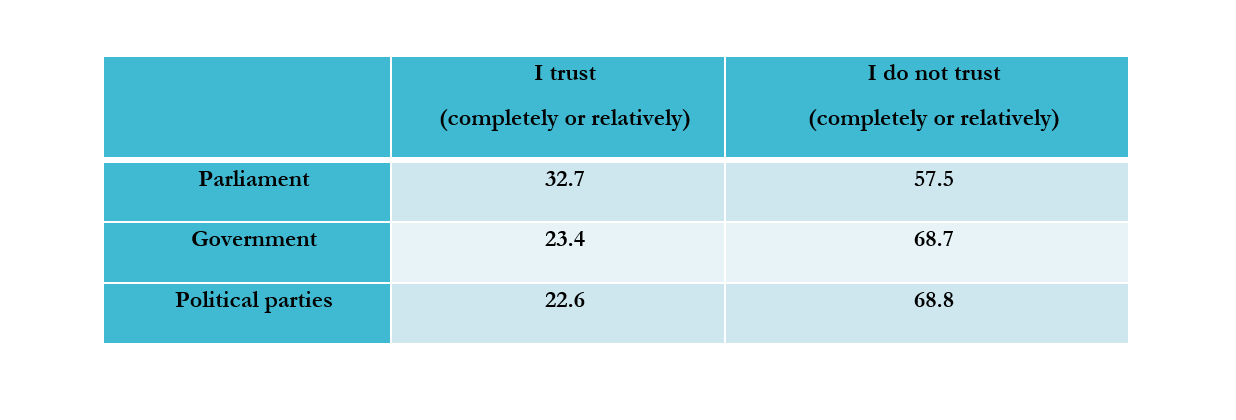
Trust in non-elected institutions of the state
Contrary to Moroccans’ mistrust of their political institutions, unelected sovereign institutions enjoy a much higher rate of confidence. As such, the police and the army are the most trusted by Moroccans; the confidence levels in the police and the army are respectively 78% and 83.3%. Confidence levels are relatively low, however, for the justice system at around 41%.

Trust in parliament
The “trust index” study highlighted the weakness of Moroccans’ confidence in their parliament, with only 32.7% of those polled having trust in parliament. The study also revealed another important aspect: more than half of Moroccans do not know the role of Parliament, and even when they know it, they do not know its exact powers. For example, when asked to name the president of both houses (Houses of Representatives and Councilors), only about 10% of respondents were able to answer. In addition, when asked to name a member of Parliament, only about 1 in 4 were able to answer. This highlights the significant lack of knowledge and monitoring of parliament’s work by citizens as well as their misconceptions about its role and prerogatives.
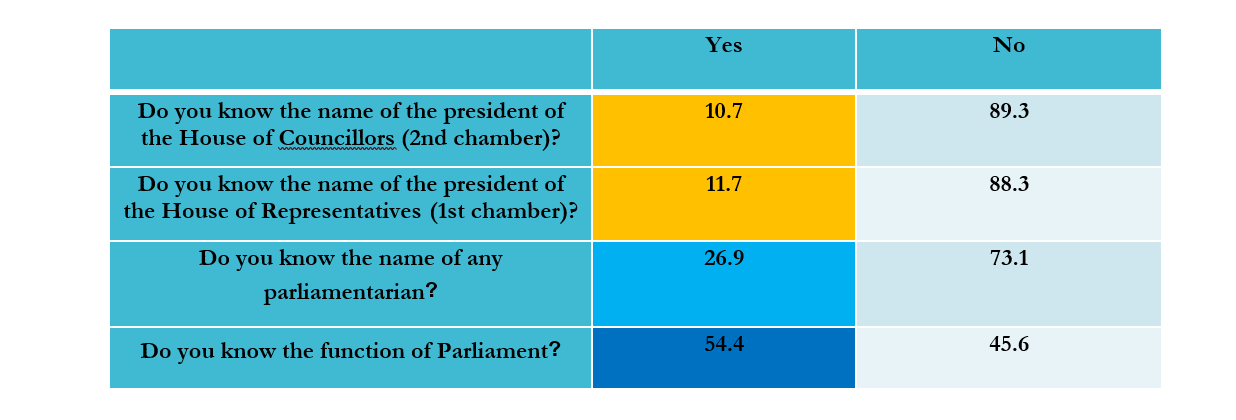
[/vc_column_text][/vc_column][/vc_row]
MIPA Institute
MIPA is a non-profit independent research institution based in Rabat, Morocco. Founded by a group of transdisciplinary researchers, MIPA’s mission is to produce systematic and in-depth analysis of relevant policy issues that lead to new and innovative ideas for solving some of the most pressing issues relating to democracy.
